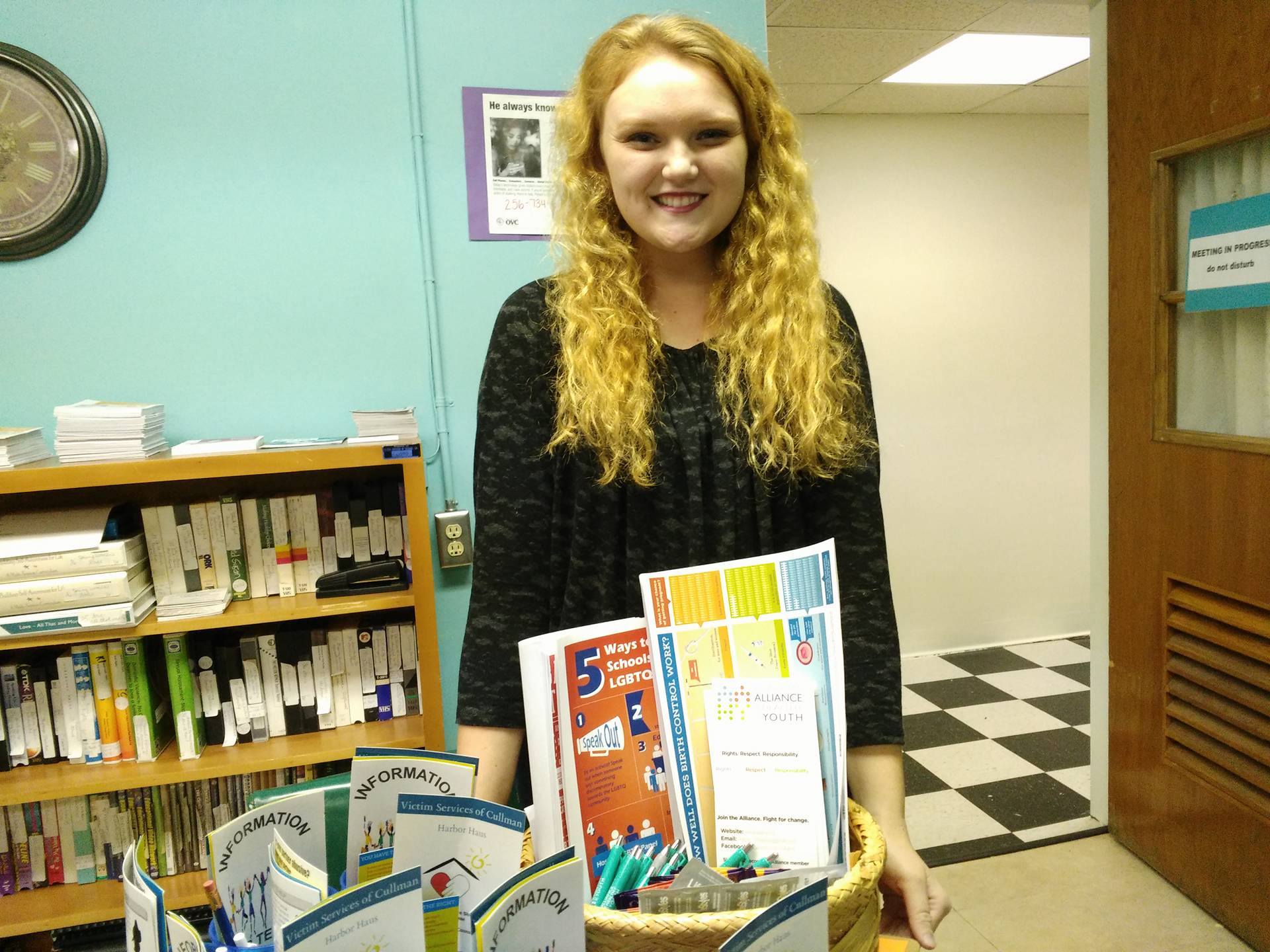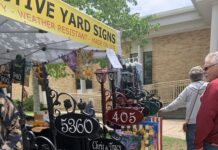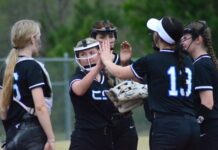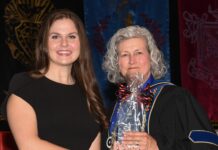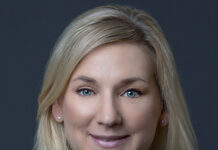Tori Partridge
CULLMAN – Local education reform activist Tori Partridge, 17, of Phelan held an open forum recently at Victim Services of Cullman to discuss the Alliance for Healthy Youth (AHY) and their mission both statewide and nationally. Another forum is planned for February or early spring of next year; however, more frequent meetings may occur if interest grows in the community for sexual health and education reform.
The statewide organization, of which Partridge is a council member, is the Alabama Alliance for Healthy Youth (AAHY). The AAHY is a statewide group of youth and adults working together to influence policies and programs that support sexual health and educational justice. The group seeks to improve overall school climate and sexual health education in Alabama’s schools and communities through advocacy.
The national group, Advocates for Youth, has various missions in various states; each state that the organization is active in has its own priorities, but they all work to achieve the common goal of comprehensive sexual education. Other projects of the national organization include the One in Three campaign which is mostly centered around reproductive rights.
Partridge first got involved with the AAHY after meeting Lisa Moyer at a girl’s fair held at Holly Pond, “She (Moyer) was passing out applications and talking about how they were about to start the new year with a new council,” said Partridge, who thinks that getting to where she currently stands is a big deal. “I was one of 50 applicants and the only person from Cullman County to receive a spot on the council,” she said.
The council is comprised of 10 members representing the entire state of Alabama; most members are from Birmingham, Tuscaloosa or Mobile. She gets paid for her work and got to visit Washington D.C. in September to lobby and learn the legislative process; the group will be going to Montgomery in January to lobby on Advocacy Day.
The goal of local forums and meetings, like the one held in Cullman recently, is to, “inform and educate younger people to get more support for changing the sexual education law that we have now into a comprehensive sex education law,” said Partridge. “The main thing that we want to change is the fact that the information taught doesn’t have to be medically accurate, which is very scary.”
Not only does the group wish for Alabama students to have medically accurate information, but they also wish, according to Partridge, “to get homophobic language out of the sex ed law that’s really outdated since there are no laws against being gay.”
Most of those in attendance were students of Holly Pond High School or were recent graduates. One such recent graduate was Lauren Leach who graduated with Holly Pond’s class of 2016. In order to graduate, Leach says she was required to take a health class, but there was no sexual education component to that class— at all.
“I wasn’t educated like I should have been,” said Leach. “It should have been a requirement that we be taught proper sexual education because some people may not be able to look that up at home or some parents may not teach it to their kids; kids should not be graduating high school without receiving a proper sexual education.”
“It’s such a shame that we don’t talk about condoms or the Cullman County Health Department because it’s such a great resource,” said Partridge as the conversation shifted to what’s already available in Cullman County. “It’s open to people that are 14 and up. They can go there and receive any type of clinical help such as physicals or STD tests, but no one knows about it. It’s really unfair that we have such a great resource right there in our back yard that we don’t teach or talk about.” More resources that are available include free condoms and free birth control, according to Partridge.
“They don’t want us to know about it, that’s the thing,” commented Leach.
Phillip Thompson, 17, of Holy Pond says that even if sexual education is covered in school, it’s mostly just an STD scare tactic to make students stay abstinent.
“We had one module on sex ed that was just all STDs and that was it,” stated Thompson. “It never talked about anything like contraceptives or abortion. Not only did it not go over how to prevent pregnancy, other than abstinence, but it didn’t go over what to do if it happened.”
The group discussed how they feel that LGBTQ+ youth suffer from our current education policy.
“It’s so frustrating how queer people aren’t receiving the education that they need,” said Partridge. “While every person is affected by the lack of comprehensive sex education, queer people are affected the most,” said Partridge.
Thompson chimed in, “It’s easier for straight people who may not receive a good sex ed class to figure things out being around other straight people that are in the same situation. They can ask their friends and it’s accepted to talk about that, but it’s not that way if you’re gay.”
“The current law portrays gays as the only people who are at a higher risk for STDs,” said Partridge. She feels that being at a slightly higher risk for STDs is not all that there is to being LGBTQ+. “That’s not all there is to being a queer person and I hate that it’s pushed to be only a negative thing,” said Partridge.
According to the group, another issue that is involved in comprehensive sexual education, that many individuals don’t realize, is what exactly a healthy relationship is and what consent is.
“A huge part of it is the healthy relationship side of it. We’re never taught stuff like that, but it’s something that is important for everyone to know. It’s unfair to expect people to know about these things if we are never taught about it,” stated Partridge.
It was the opinion of those in attendance that not everyone comes from a religious background or shares the same beliefs.
“In a small town where there is a church on every corner, religion plays a big part,” commented Leach.
Copyright 2016 Humble Roots, LLC. All Rights Reserved.

